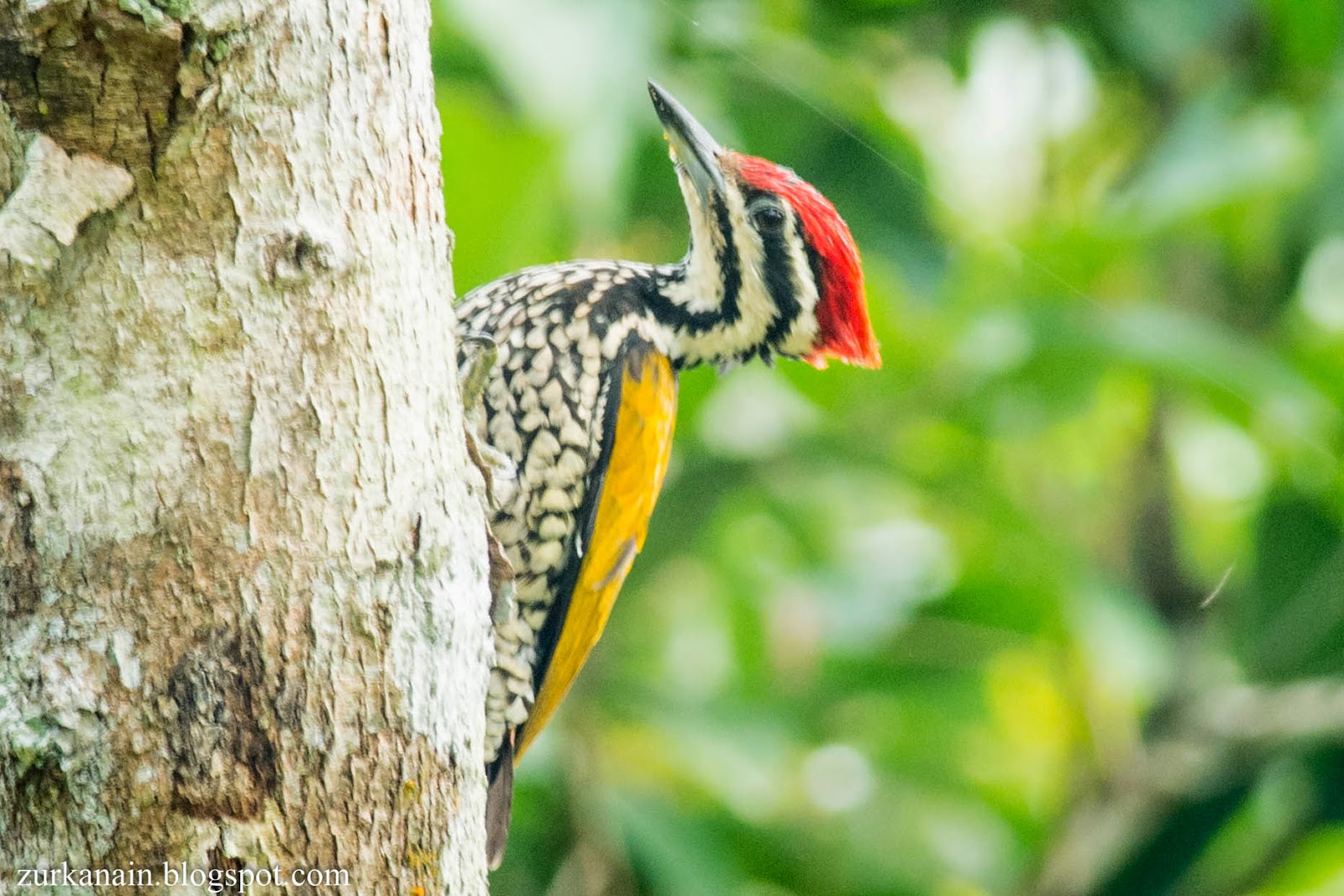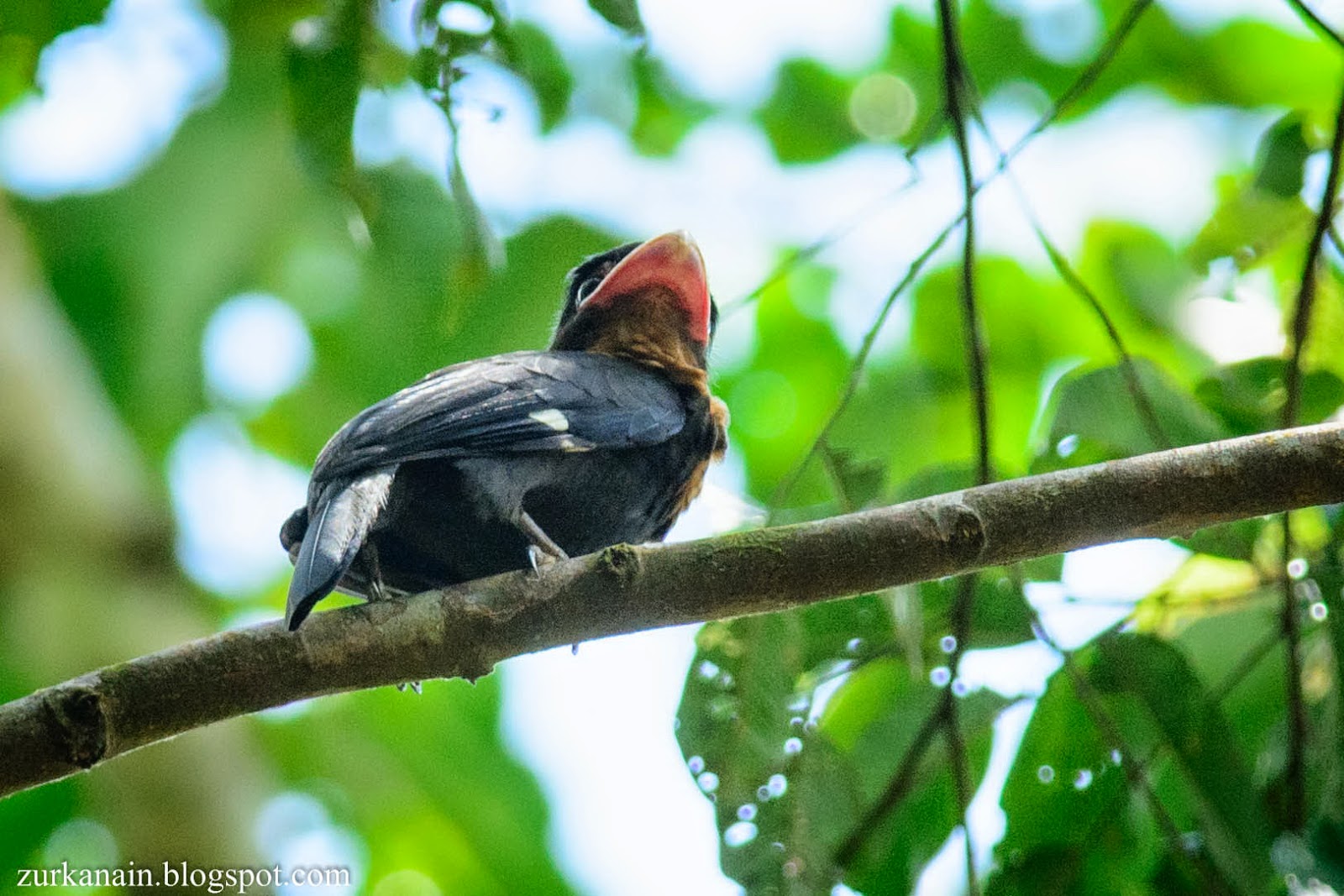Aegithina viridissima
Loc: Terengganu
Saturday, March 28, 2015
Crested Partridge - Burung Siul ( Record shot ) Lifer
Burung Siul
Crested Partridge
Rollulus rouloul
Loc: Pahang
Kagum pertama kali dapat saksikan secara `live' burung ini. Gambar akhir yang aku dapat saksikan burung ini adalah stem keluaran Pos Malaysia sekitar tahun 70an. Burung ini merayap diatas tanah dicelah dan rimbunan pokok pokok renik. Amat sukar bagi aku untuk mengambil fotonya ketika itu kerana burung ini terlalu sensitif walaupun ianya nampak macam jinak. Masa juga terlalu singkat untuk aku mengambil gambar seterusnya.
Crested Partridge
Rollulus rouloul
Loc: Pahang
Kagum pertama kali dapat saksikan secara `live' burung ini. Gambar akhir yang aku dapat saksikan burung ini adalah stem keluaran Pos Malaysia sekitar tahun 70an. Burung ini merayap diatas tanah dicelah dan rimbunan pokok pokok renik. Amat sukar bagi aku untuk mengambil fotonya ketika itu kerana burung ini terlalu sensitif walaupun ianya nampak macam jinak. Masa juga terlalu singkat untuk aku mengambil gambar seterusnya.
The Crested Partridge (Rollulus rouloul), also known as the Roul-roul, is a striking gamebird native to the lowland rainforests of Southeast Asia, including Malaysia, Sumatra, and Borneo. It is the only member of the genus Rollulus and is known for its vibrant plumage and unique behaviors.
Physical Description
- Male: Metallic green body with glossy dark blue underparts, a tall red crest, and a white forehead spot. It has a scarlet patch of bare skin around the eye and red legs.
- Female: Pea-green body with brown wing coverts, a slate-grey head, and bristles but no crest or forehead spot.
- Size: About 25 cm (9.8 in) in length, with males slightly larger than females.
- Wings: Short and rounded, adapted for quick bursts of flight but primarily used for running.
Behavior & Ecology
- Diet: Feeds on fruit, seeds, and invertebrates, playing a crucial role in seed dispersal within the rainforest.
- Nesting: Builds a ground scrape nest lined with leaves, hidden under leaf litter. The female lays five to six white eggs, incubated for 18 days.
- Parental Care: Unlike most galliform birds, both parents feed the chicks bill-to-bill, and the young roost in the nest while small.
- Social Structure: Often seen singly or in pairs, using their feet to probe the forest floor for food.
Conservation Status
The Crested Partridge is classified as Vulnerable due to habitat destruction.
Sunday, March 22, 2015
Peninsular Malaysia Woodpecker of 2015
Excited with the Woodpecker Family...next coming Bamboo Woodpecker.
 |
| Checker Throated Woodpecker |
.jpg) |
| Rufous Woodpecker |
 |
| Crimson Winged woodpecker |
 |
| Common Flameback Woodpecker |
 |
| Orange Backed Woodpecker - Female |
 |
| Sunda Pygmy Woodpecker |
 |
| Grey and Buff Woodpecker |
 |
| Banded Woodpecker |
 |
| Bay Woodpecker |
 |
| Buff Necked Woodpecker |
 |
| Buff Rumped woodpecker |
 |
| Maroon Woodpecker |
 |
| Greater Flameback Woodpecker |
 |
| Lace Woodpecker |
 |
| Rufous Piculet |
 |
| Great Slaty Woodpecker |
 |
| White Bellied Woodpecker |
 |
| Lesser Yellownape |
 |
| Orange Backed Woodpecker - Male |
Sunday, March 15, 2015
Sunday, March 8, 2015
Sunday, March 1, 2015
Dusky Broadbill - Lifer
BURUNG TAKAU RIMBA HUJAN
Dusky Broadbill (Corydon sumatranus)
Loc: PahangThe Dusky Broadbill (Corydon sumatranus) is a large, dark-colored broadbill native to the forests of Southeast Asia. It is the only species in the genus Corydon, making it quite distinct among broadbills.
Physical Description
- Plumage: Mostly charcoal gray with a pale-yellow throat.
- Bill: Large, deep-set, and pinkish-red, giving it a striking appearance.
- Eye Ring: Brown, adding to its unique facial features.
- Wings & Tail: A single white band on the wings and white markings on the underside of the tail.
Habitat & Behavior
- Found in moist tropical forests, swamps, and cloud forests up to 2,000 meters in elevation.
- Often seen in medium-sized noisy groups, making it more social than other broadbills.
- Forages like a roller, making quick flights from perches to catch insects.
- Vocal, producing squeaky notes, croaks, and rattling calls.
Conservation Status
The Dusky Broadbill is classified as Least Concern.
Subscribe to:
Comments (Atom)



.jpg)














